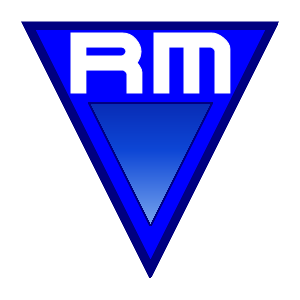Authoring Experience Matters
Authoring Experience #1Every book has an interesting story behind it. The book cover pictured on the right was my first. I co-authored it with two other managers who worked for the same firm. I lived in New York State, while one of them was in Canada, and the other in Texas. Writing a book with authors scattered across the continent prepared me to be a ghostwriter in several ways. |

|
If I act as your ghostwriter, we must work together effectively across long distances. You probably live a thousand miles away from me. You need a collaborator who gets along well with people. The process of creating a book can occasionally be stressful, particularly in a remote collaboration.
We three got along fine, and we finished the book. As we wrote it, we were concerned that the material was a bit dry. So, we agreed to create a set of cartoons to accompany the text. We found an aspiring doodler on our employer’s staff to help. Her rendition of a set of visual puns in cartoon form lightened up the result. I know how to be flexible when producing a manuscript. Sometimes things just need to change.
Authoring Experience #2The cover of my second book is shown on the right. I co-authored it with a colleague who worked on a research project with me. The project was funded for $445,000 by DARPA, the Defense Department research agency, in response to a proposal I submitted to them. |

|
This project taught me a several important lessons about the publishing process. The acquisitions editor at one publisher told me that what I proposed to do in the book was theoretically impossible. I explained that if certain constraints were placed on the problem, it was indeed tractable. I even had a working software system to prove it. Don’t be discouraged by acquisition editors like that one. You know a lot more about your subject than they do. An acquisitions editor at a different publisher was not quite so cocky, and we went with his firm.
The book contained a great deal of mathematical notation. My co-author and I put a lot of effort into formatting the equations correctly in our draft. We were concerned that the publication process would result in many typographical errors. We didn’t want a 10 page errata list.
Our publisher was in the process of replacing the software templates that were used to format their books. An independent consultant was developing a new set of templates for them, to give their books a distinct style.
The publisher agreed to let me submit camera-ready copy for the book, if I would agree to be the first user of the new templates. So, I became both the copy editor and the typesetter for my book. Copy editing your own work is very difficult. After working on a text for a long time, it is very difficult for anyone to see their own typographical mistakes.
If I act as your ghostwriter, I will sub-contract a copy editor to do the final copy edit of your manuscript. Another lesson learned.
It took over a year to work out the bugs in the new templates. Finally, I could generate camera-ready copy to my satisfaction. As a result of this effort, I know much more than I would like to about typesetting books.
If act as your ghostwriter, I will deliver to you a final manuscript. This is not the same as a book. A book is a manuscript that has gone through the production process, which includes typesetting.
Authoring Experience #3You can see the cover of my third book in the picture on the right. A friend who was a computer science professor asked me to teach a short course to his graduate students about debugging. After I taught the course, I expanded the material as I continued to research the subject. Eventually, I had a draft, and a contract with a well-known publisher. |

|
Then disaster hit. My acquisitions editor went on maternity leave. In publisher’s lingo, I had been “orphaned.” When my editor came back six months later, the priorities in her department had changed. Her boss no longer wanted the book.
All was not lost, however. The publisher had accepted the book through a joint program with my employer. The publisher wanted to maintain good relations with my employer. So, in a compromise, they paid the advance they had promised, and released me from the contract. After several more months, I found another publisher. I had to go through another round of reviews and editing. While it took many more months, doing this improved the quality of the final product. Don’t be discouraged by unexpected problems like I encountered. If you have solid content, and persevere, your book will eventually get published.
My wife is also an author. I did an aggressive line editing of her most recent novel, and we are still happily married. I know what it is like to be on the receiving end of constructive criticism. While I might be tough on words, I can explain the reasons for my recommended changes without hurting the author’s feelings. I have also written / edited privately published manuals and courses in several areas of computer science, as well as numerous articles for conference proceedings and journals.

